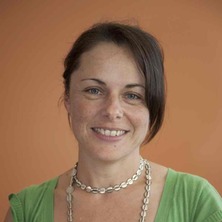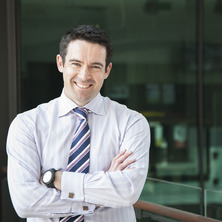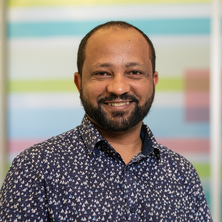Impacts in infectious diseases research
Finding effective doses
 Researcher: Dr Suzie Parker
Researcher: Dr Suzie Parker
Background
My research focuses on fosfomycin, an antibiotic used as a last-line of defence in severe bacterial infections. Sub-optimal use of such antibiotics contributes to the high number of deaths from bacteria that are resistant to many standard antibiotics (>50,000 per year).
Impact
My work showed for the first time the effective dose required for using fosfomycin in critically ill patients.
This directly influenced the use of higher fosfomycin doses in more than 16 countries and 85% of patients studied are clinically cured of their infections.
Therapeutic drug monitoring
 Researcher: Professor Jason Roberts
Researcher: Professor Jason Roberts
Background
Sub-optimal use of antibiotics for severe infections contributes to the high number of deaths from bacteria that are resistant to many standard antibiotics (>50,000 per year). Our research enables doctors around the world to identify the dose of antibiotic needed to cure patients of their bacterial infections.
Impact
Our therapeutic drug monitoring is now used in hospitals in more than 12 countries worldwide and supports the care of over 4000 patients in more than 30 Australian hospitals, resulting in improved cure and survival. Our work with one particular type of antibiotic (beta-lactams) is now used in more than 30% of intensive care units globally. Our work contributed to 19 treatment guidelines used by all Australian hospitals and more than 50% of all GPs. Our clinician education program has trained over 2000 participants from 25 countries.
Discovering dosage required
 Researcher: Dr Fekade Sime
Researcher: Dr Fekade Sime
Background
Sub-optimal use of antibiotics for severe infections contributes to the high number of deaths from bacteria that are resistant to many standard antibiotics (>50,000 per year). In some cases this can also lead to the emergence of multi-drug resistant superbugs.
Impact
Our work has shown that the amount of antibiotics used to treat an infection varies with the severity of the illness.
Our discoveries on the dose required for critically ill individuals has had a profoundly positive effect on patient outcomes. Our work has influenced recommendations by the Australian Therapeutic Guidelines and the internationally recognised Sanford Guide to Antimicrobial Therapy.
Serious infections in children
 Researcher: Dr Adam Irwin
Researcher: Dr Adam Irwin
Background
The most common illness seen in children at emergency departments globally is a fever with no obvious cause, also known as febrile illness. This illness can be caused by invasive infection, where germs invade a part of the body that are normally free from germs. In some cases the patient's immune system fights off the infection unassisted (self-limiting infection), but in serious cases, medication and a hospital stay is needed.
Our work helps doctors to recognise when an infection is self-limiting, which reduces the number of unnecessary hospital admissions and excessive antibiotic use.
Impact
As a PhD student, I developed a risk score based on clinical features and biomarkers that accurately informs the doctor of the seriousness of the child's infection, allowing the optimal treatment to be prescribed.
Treatment guidelines used by doctors worldwide were informed by this work, ensuring that febrile illnesses are treated appropriately for the best possible outcome for patients.
